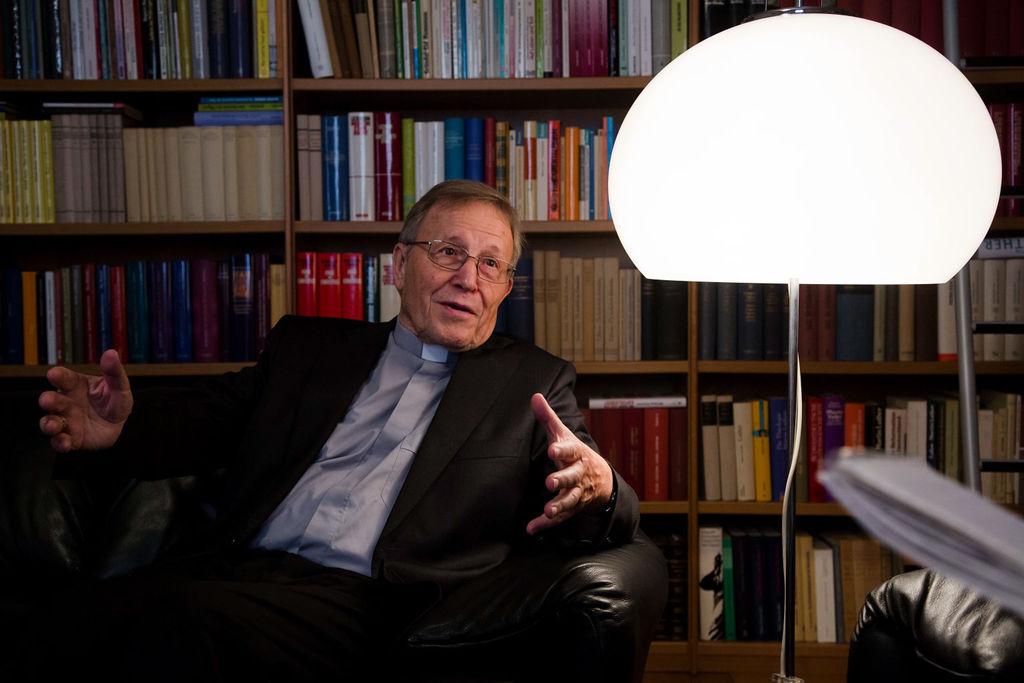VATICAN CITY — From his living room overlooking St. Peter’s Square, Cardinal Walter Kasper doesn’t come off as a figure at the center of one of the greatest storms swirling in Catholicism in decades.
The German theologian said he fully expected the knives would come out when, at Pope Francis’ request, he made a suggestion that challenged a deep church taboo and has dominated debate ahead of the meeting on Catholic family life that opens today.
The issue is not abortion, contraception or same-sex marriage. It is the fate of Catholics who divorce, and the outcome will be a key test of Francis’ reform agenda.
Delivering a speech to a closed meeting of cardinals in February, Kasper suggested that Catholics who remarry without annulment — a church declaration that the first marriage was invalid and thus never existed — might receive Holy Communion after a period of penance. Church teaching holds that without annulment these Catholics are living in sin and thus ineligible to receive the sacraments.
Based on the mudslinging the remarks set off between church liberals and conservatives, outside observers might have thought that Kasper had proposed that women be ordained as priests.
Five prominent cardinals — including the Vatican’s doctrine czar and its supreme court chief justice — published an entire book to refute Kasper. Francis’ top economic adviser did the same in a preface to another book. Conservative commentators, canon lawyers and theologians have been furiously blogging to argue that Kasper’s suggestion is impossible, because it runs contrary to Jesus’ teaching on the indissolubility of marriage.
“The church is not going to change its teaching on the indissolubility of marriage, because she cannot,” American Cardinal Raymond Burke, one of Kasper’s fiercest critics, told reporters last week.
But as he faces the firestorm, Kasper has a powerful ally: the pope himself.
During his first Sunday blessing as pontiff, Francis praised Kasper by name as a “great theologian” and gave an unprecedented papal thumbs up to his book “Mercy,” which provides the theological basis for mercy being at the heart of the Christian message.
Showing the church’s merciful face rather than its morality-driven side has come to define Francis’ pontificate, and informs the way he has long treated complicated pastoral issues such as divorce.
“I believe that this is the season of mercy,” Francis told reporters last year when asked about a possible opening for divorced and remarried Catholics.
Veteran Vatican official Kasper, 81, is calm amid the tempest, and certain that a solution can be found while staying true to doctrine.
“I think we can have common criteria, a common doctrine on marriage and family,” Kasper said. “And then I think the bishops’ conferences should decide concrete ways to do it.”
On divorce, Kasper argues that if the church can forgive a murderer, surely it can forgive someone whose first marriage failed and wants to try again while still participating in the sacramental life of the church. He is not looking for an across-the-board decision but rather an opening for pastoral discernment on a case-by-case basis.
“Mercy is that God gives us a new chance, in every situation, if we want it,” Kasper said. “That is a very important message: We can always start anew.”
